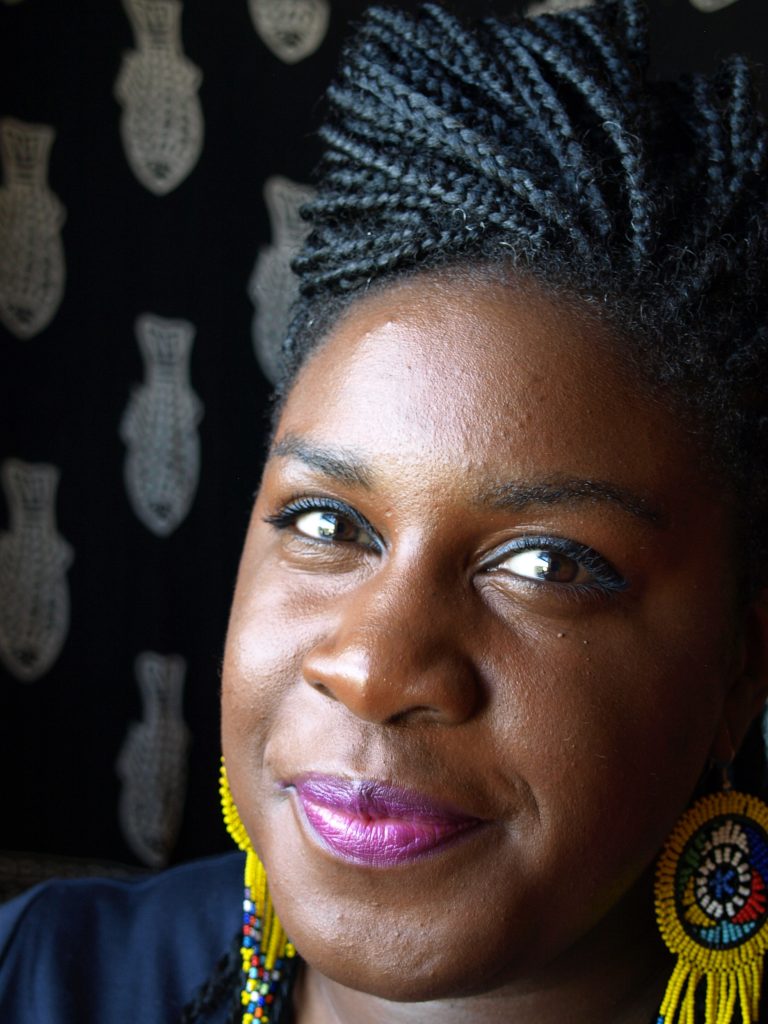Nollywood – The Alternative Take: An Interview with Nadia Denton
The world of British Council film curator, author and cinephile Nadia Denton is returning to some kind of normality. She is fresh from the hectic but rewarding buzz of her most recent Beyond Nollywood festival I Dey Observe at the British Film Institute (BFI) in August. A veteran of some 15 years, Nadia’s international film festivals have attracted the likes of Spike Lee. 2018’s collection is the fourth iteration of Beyond Nollywood. The idea came to Denton whilst writing The Nigerian Film-makers Guide to Success (a follow up to her The Black British Filmmaker’s Guide to Success).

Nadia’s isn’t the most obvious profile for a West African film enthusiast. Born in the UK to parents from Jamaica and Barbados, Denton studied Modern History at Oxford University. A passion for film flourished whilst running an informal cinema club at the Institute of Contemporary Arts. She describes film as the “ultimate artistic expression”.‘I think because it’s audio-visual, it’s the most immersive experience you can have,’ she effuses. ‘Lots of people would never go to a concert or the theatre or don’t read but they watch films at home, even if they don’t go to the cinema. I really think it is one of the most persuasive, if not the most persuasive, art form that we have. When filmmakers hit the right note, it’s like magic. What they create can alter people’s perceptions in the space of 90 minutes.’
That explains her cinematic predilection. With no direct cultural roots, from whence thus came her fascination with Nigerian film? ‘I do get asked the nationality question a lot,’ she shares. ‘I realise there are very complex issues regarding Nigerian identity. There can be a slight defensiveness or suspicion but I’m happy to answer people’s questions. I think it’s important to be transparent.’ She expounds, ‘I’m at a point in my career where it’s less about national lines and more about people’s particular focus; the kind of film they want to make. As such, different filmmakers have come into my circle. I am not sure if they immediately see themselves as Nigerian filmmakers. Some of them see themselves as indie creators’. Nadia is keen to support the industry under-dog.‘I’m less inclined to commercial film-makers, whether it be a Jamaican or Nigerian director doing blockbuster movies. I’m more interested in a particular ideology; something that is aside from the mainstream and unique.’
So why Nigeria? ‘I noticed a trend about five or six years ago, mainly amongst some of my Nigerian diaspora film-maker friends,’ she explains. ‘For most of my career up until that point I showed the “black world”, I suppose you can call it. I came to a stage where I was interested in investigating something specific. When researching my book, I started to see lots of experimental stuff – art house, documentary, music videos – that weren’t really part of Nollywood per se. They had a particular voice and represented a certain experience which I believe is trans-atlantic. Many of the Beyond Nollywood filmmakers have either lived in other parts of the world or have heavily consumed other cultures. It has been infused into their work. It’s quite different from the traditional Nollywood. From a generational point of view, they had different experiences and expectations from their parents.’
Denton also observed a cultural shift away from a more Caribbean (namely Jamaican)-dominated concept of ‘Black British’ identity.‘There was an increase in popularity of West African culture; be it Afrobeat, people wearing traditional clothes or being more familiar with the food. I started to see that I could locate [the trend] amidst something that was happening more broadly,’ she explains. ‘I also realised there was a whole demographic aspect which is a driver. Obviously, Nigeria’s demographics and the youth population mean that it can grow and be quite viable in a way it wouldn’t be for other parts of the world.’Nadia welcomes this sea change.‘We can all share in one another’s culture without losing anything. The fact that Jamaican dancehall isn’t as popular doesn’t bother me. I’m quite happy to embrace the West African culture as I feel it’s more relevant to the time. I think a lot of people don’t understand that and can become quite fixed.’
NEXT PAGE >>


